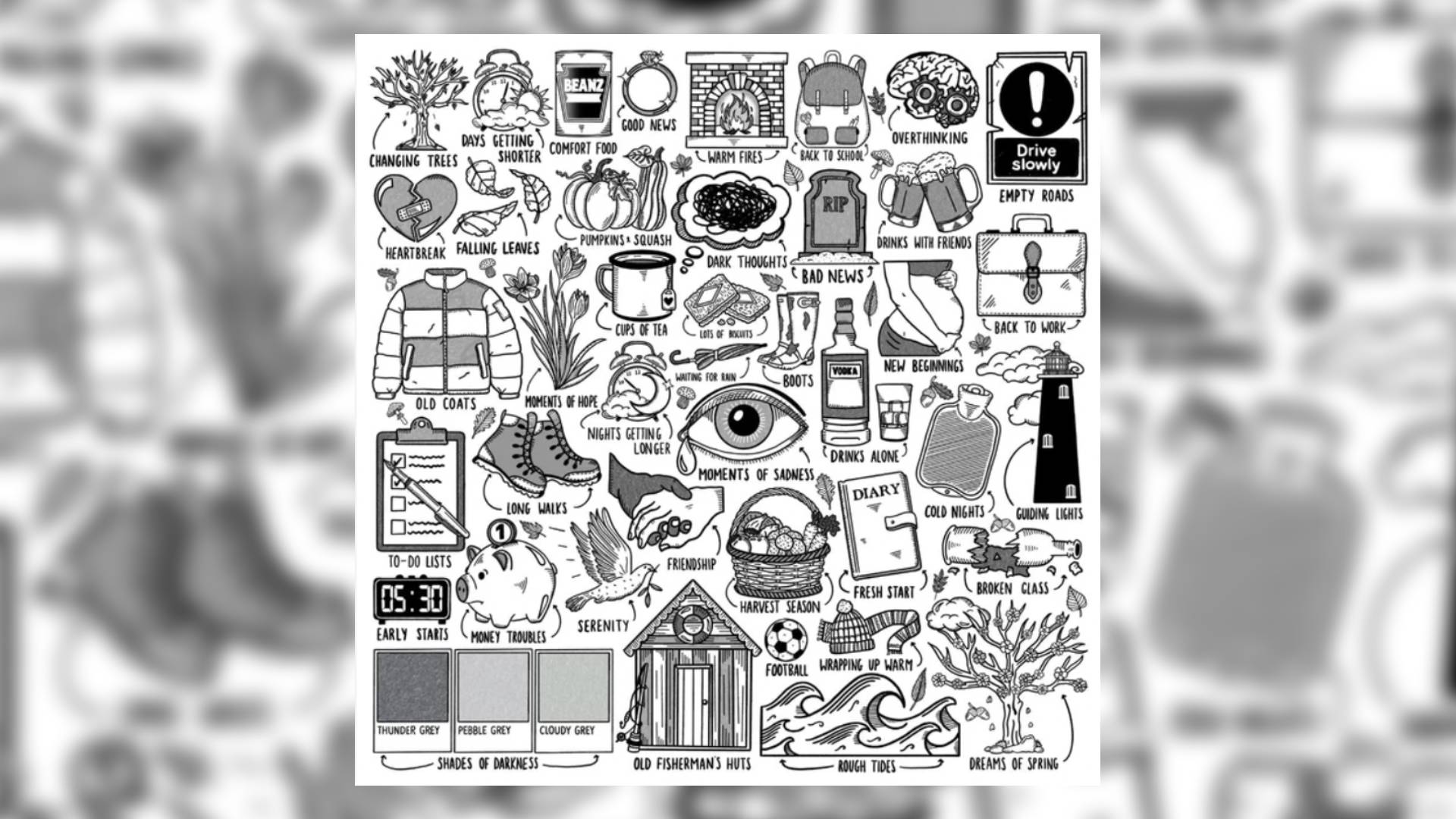Ed Sheeran released his seventh studio album Autumn Variations on Friday, and the record perfectly encapsulates Sheeran’s ability to share his emotions during specific moments in his life.
Autumn Variations came unexpectedly with Sheeran’s last album, Subtract, out just a few months earlier. The new record was co-wrote and produced by The National’s Aaron Dessner. With his help, Sheeran has returned to a sound we haven’t heard since the beginning of his discography.
The opening track is entitled “Magical” and it’s a sweet, but stereotypical love song from the artist. With lyrics like “Is this how it feels to be in love? / This is magical, this is magical,” the writing on the track feels less thoughtful than the rest of the album.
The second song, “England” is a nice love letter to his home country, but isn’t nearly as introspective or personal as his later tracks.
Sheeran gets very self-reflective on his third song, “Amazing.” He touches on his insecurities with lyrics like “I wish I was a strong boy, head in the sand / If I were them, I would be the man.”
“Amazing” is more reflective of what listeners should expect from the rest of the tracks: moving guitar ballads coupled with Dessner’s effective, yet minimal production.
[UMD Arboretum Bee Wall aims to protect campus pollinators]
In the fourth song, “Plastic Bag,” Sheeran touches on leaving his hometown and trying to find purpose. Lyrics such as “So I left home and jumped in the deep end / Took a job for dad, I think, just to please him” give listeners insight into Sheeran’s past.
The fifth track, entitled “Blue,” has some of my favorite writing on the entire album. Although it sounds similar to other tracks, Sheeran sets the song apart with poetic lyrics: “Quietly stuck in the moment, I’m not over you / I’ll be forever lonely / Silence ain’t golden, you know that it’s only blue.”
“American Town” is slightly faster than some of the previous tracks, but it’s better than the opening, as it clearly reflects a specific relationship Sheeran had. It is also one of the happiest tracks on the album, making it a refreshing change from the songs we have so far.
The seventh track, “That’s On Me,” was one of the songs that reminded me most of Sheeran’s earlier albums. The song starts with fast-paced singing paired with a slightly slower chorus. The song has a hopeful build-up as Sheeran sings, “This is not the end of our lives / This is just a bump in the ride.”
His ninth track, “Midnight,” has more unique production in opening with an abrupt, fast-paced beat as opposed to his usual slow guitar.
[These 5 shows give the autumnal vibes you’re looking for]
Admittedly, some of his songs, such as “Page” and “Spring” start to blend together. Sheeran typically mixes his sad ballads with a few pop singles, allowing for the songs to be slightly more distinctive.
I like that the album is thematically cohesive, but with many of the songs sounding similar, I found it harder to listen to as I continued.
Sheeran is at his best in his most introspective songs, like his next two tracks “Punchline” and “When Will I Be Alright?”
“Punchline” reflects Sheeran’s mindset during a low point as he sings, “I can’t help but be destructive right now / It’s been weeks since I saw your outline / In my room is a silence so loud / This is what losin’ hope might sound like.”
“When Will I Be Alright” has similar self-reflective writing, as Sheeran talks about being left by a partner. The melancholy lyrics are emphasized by the slower instrumentals accompanying the track.
“The Day I Was Born” unsurprisingly looks back at the artist’s life, but also talks about his past friendships and current loneliness by comparing it to the feeling of spending a birthday alone.
The ending song, “Head > Heels,” is a solid representation of the album as a whole. Sheeran sings about the positive and disappointing experiences of his life and looks to embrace a new chapter, singing, “Rebuild what was destroyed / Turn it, then the chapter can begin.”Despite the album’s repetitiveness, I am a fan of Autumn Variations. Sheeran is emotionally vulnerable yet hopeful for the future. The album ultimately took the artist back to his roots, but Dessner’s production allowed the songs to be a step up from Sheeran’s debut albums.



